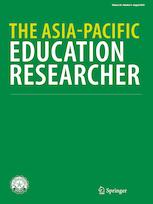| Special Journal Issues - School Leaders’ Emotional Experiences: Challenges, and Prospects Volume 30, Issue 4, 2021 The Asia-Pacific Education Researcher
|
||||||
|---|---|---|---|---|---|---|
Theme |
The papers in this special issue provide an important portrait of the complex nature of school leaders’ emotions and how these affect other critical aspects of schooling. This special issue justly epitomises a mix of data sources and viewpoints concerning school leaders’ emotional experience. We sincerely wish that the contributions from this special issue will stimulate scientific academic and educational work on this theme in the future, and encourage as well as serve practitioners and policymakers. |
 |
||||
Issue
Co-editors |
 |
Dr CHEN Junjun Associate Professor Department of Education Policy and Leadership & APCLC Research Fellow & Research Co-ordinator The Education University of Hong Kong China |
 |
 |
||
| Contributors |
|
|||||
|
||||||
Leadership is enacted through relationships. Relationships between leaders and followers entail building emotional connections. A successful leader facilitates and supports mutually beneficial relationships with teachers, students and other community members. They do this through displaying high levels of emotional competence, confidence and empathy. Using data collected from 101 primary school principals from six Chinese provinces, this paper explores how principals build reciprocal relationships with teachers via the display and enactment of paternalistic leadership. That is, the principals adopted a paternal leadership approach where they provided protection and care for teachers’ professional and personal lives while maintaining high expectations of quality teaching and cultivating a shared understanding of what teachers should and should not do. Many of the principals managed to win trust from teachers, which appeared to signify a strong personal bond founded on positive emotions. As such, the study provides an empirical basis to reflect and revisit the concept of paternalistic leadership and relationship between culture, leadership and emotional relationships. |
||||||
|
||||||
|
||||||
|
||||||

